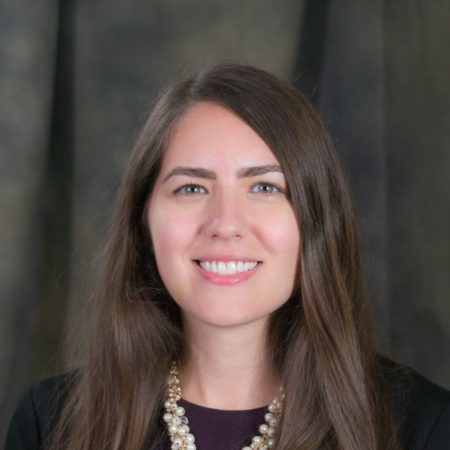Since 2022, HFNJ has provided a total of $370,380 over three grants to support a project by the New Jersey Health Care Quality Institute (NJHCQI) offering mental health education to Perinatal Community Health Workers.
We spoke with Adelisa Perez-Hudgins, Director of Quality of NJHCQI, about how the training program is helping to support local perinatal healthcare providers to identify maternal mental health symptoms earlier and provide increased support for those in need of help.

1) Tell us about the genesis of this project. What made NJHCQI interested in providing mental health training for the perinatal health workforce?
Maternal mental health conditions are among the leading causes of pregnancy-related deaths in New Jersey, and more than 90% of these deaths are preventable. One in five women—and an even greater proportion of women of color—experience postpartum depression, anxiety, or related conditions. As part of our broader maternal health work, we saw that perinatal community health workers, doulas, and others who support pregnancies are uniquely positioned to notice concerns early and connect people with care. That was the impetus: to close a critical gap by equipping the perinatal workforce with evidence-based skills taught through Mental Health First Aid.
2) How many individuals have received training through this program?
We have trained 237 community health workers and others who support pregnant people in Mental Health First Aid. Each participant leaves with practical skills to recognize mental health challenges, apply the ALGEE action plan, and connect individuals with appropriate resources.
3) Tell us about the training process – and how you follow up and support the attendees afterward.
Perinatal MHFA training, which was developed under this grant, is a seven-hour interactive certification course with required pre-work. It combines video, group discussion, and role-play exercises—using maternity-specific scenarios we developed that mirror real prenatal and postpartum challenges. After each session, we survey participants and again three to six months later. This helps us understand how they are using the skills in practice, and it allows us to provide additional support as needed. Furthermore, all participants receive a MHFA manual, which contains in-depth information on mental health, symptoms, and learned skills to review as needed.
4) What have you learned from the doulas, community health workers, and others during the project? Have you witnessed any changes in the field since the project began?
We’ve learned how deeply committed these professionals are in supporting their clients and how eager and open they are for tools that help them approach sensitive conversations. We’ve seen participants take what they learned and apply it with clients, colleagues, and even family members. Importantly, the field is beginning to recognize maternal mental health not as a secondary issue but as a central driver of maternal health outcomes, with more organizations seeking training for their teams.
5) What have been your key take-aways on how to provide successful training programs for healthcare professionals?
Success requires making trainings both accessible and relevant. We’ve learned to build flexibility into scheduling, extend deadlines when needed, and keep waiting lists so every seat is filled. We also regularly assess participant interest in the program. The content must also be genuine and relatable. The maternity-specific role-playing scenarios have been critical to our success. Participants consistently tell us they see themselves and their clients in these cases. Finally, follow-up matters. Ongoing evaluation and opportunities for peer learning make the training more than a one-time event; it becomes a practice that grows over time.
6) Can you tell us about how the storytelling campaign emerged from this project?
The storytelling campaign highlighted the lived experiences of participants who have put their training into practice. For example, a doula shared how she used the skills to support a client experiencing postpartum depression; a nurse described helping a mother after fetal loss; and a community health worker recounted applying the ALGEE Mental Health First Aid action plan with both clients and new nurses in her clinic. We’ve captured these stories through interviews and professional photography, creating print and digital resources that showcase the human impact of the training. We’ve also had participants share their stories and experiences in virtual learning sessions and in-person convenings.
7) We are proud that the program has had national impact. What have been some of the ways the learnings from this project have been replicated outside of New Jersey?
The most visible example is that the maternity-specific scenarios we developed were approved by the National Council for Mental Wellbeing for national use. Now, MHFA instructors across the country can incorporate these scenarios into their trainings. Beyond that, organizations from New Hampshire to Texas have reached out to learn from our process of tailoring MHFA for the perinatal workforce. Recently, we spoke with North Carolina’s Department of Health and Human Services about our program. They are developing a perinatal MHFA program, building off our successes and lessons learned. In addition, our white paper describing our work has circulated nationally, sparking interest from health systems, policy institutes, and maternal health collaboratives.
While we are working to improve maternal health here in New Jersey, it is exciting to see our work, supported by The Healthcare Foundation of NJ, used to strengthen maternal care and inform the national dialogue on maternal mental health. Our long-term vision is for maternal mental health education—through MHFA and other curriculum—to become standard practice for all who care for pregnant and postpartum patients.
